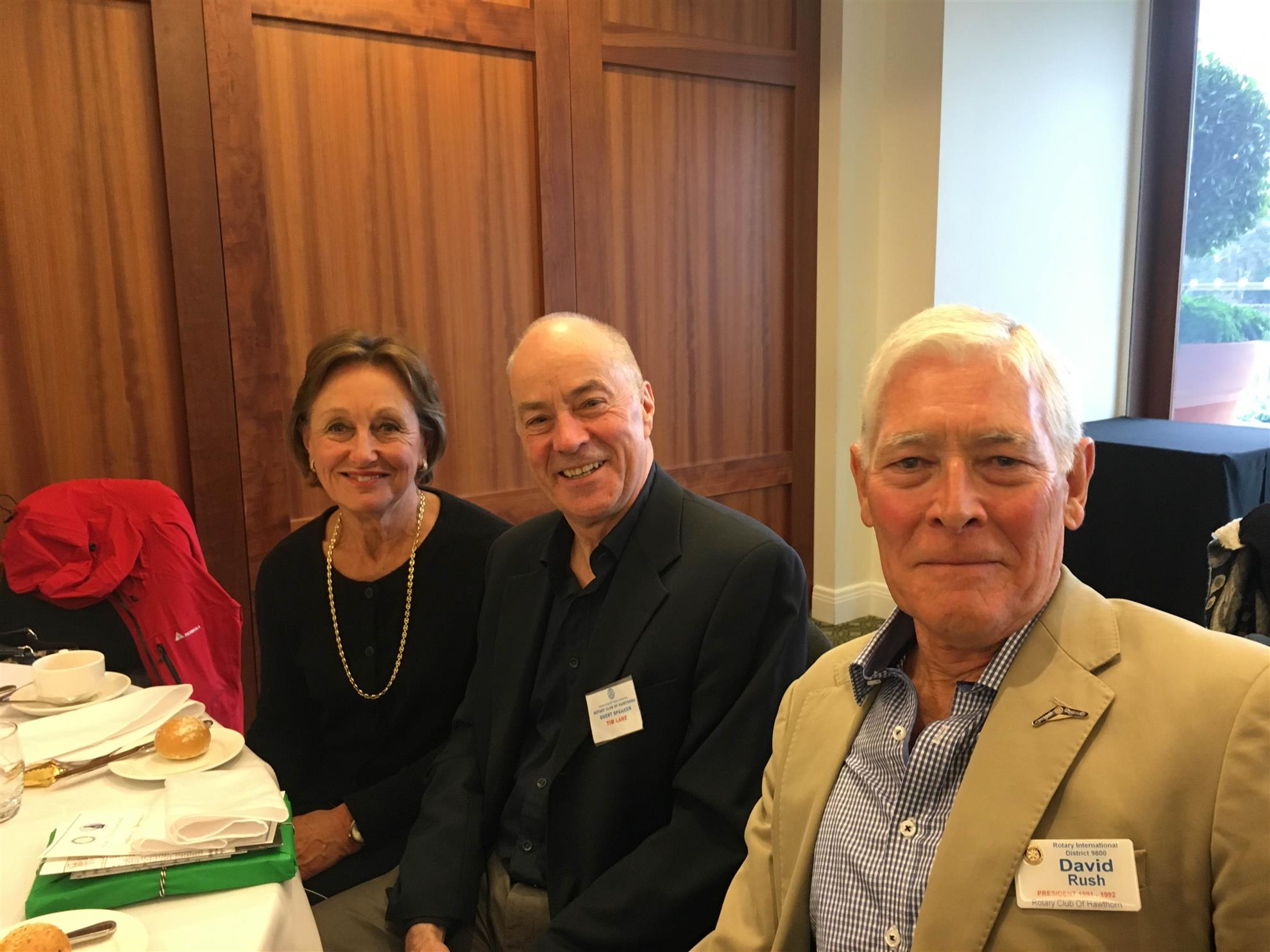Tim Lane..A View from the Commentary Box
Posted on Jun 07, 2016

It’s a great skill to be able to take the microphone and ....
proceed apparently effortlessly to entertain and inform an audience with an interesting discourse of a range of subjects. Such is the skill of a top public broadcaster. Tim Lane fits that bill. That's him above between the two Rush's.
Last week as guest speaker, the well known and enduring sports caller, after a brief introduction from Chairman David Rush took us through 44 years of his commentating career and observations in sport. Aside from perhaps the hint of bias toward the exploits of one particular AFL team (albeit countered by the Chairman’s bias to another) his observations were very insightful.
Tim moved to Melbourne from Tasmania in 1979. Foremost known for his association with Australian Rules (at last count he'd broadcast 31 VFL/AFL Grand Finals) he has a far broader broadcasting capacity, gained during three decades with the ABC, broadcasting international cricket for 15 years and covering five Olympics Games.
His address started with a timely review of the career and life of recently passed boxing great Muhammad Ali.
Then we learnt of how Tim got into the business years ago after a chance meeting at a pub with a local Tasmanian football broadcaster and an attitude to have a go and grab the opportunity. “One never knows where these things lead” is the thrust of his current advice to young people seeking a career.
Forty-four years were summarised with some memorable key points. In 1972 there was black and white TV, the Munich Games and terrorism, and in 1977 colour TV and the start of TV’s intrusion and influence via rights payments into directing sports. Taking us up to the present he reflected on, successive Olympic boycotts, the West Indies Cricket dominance, then Australia’s, drugs in sport, match fixing, and the changing style of AFL in recent years and the general demise of "innocence'' and sport for pleasures sake. He noted now in the AFL it is often characterised by one dominant team playing positive football and rest all focusing on defensive football to catch up. Only the former is attractive notwithstanding the element of tension does exist for the fans in many low scoring contests.
In cricket, again there has been a dramatic change in the game arising from the T20 format and inherent predictable style it creates.
Tim expressed some personal views that not all of these changes have been welcomed by him, and in so doing quickly resonated with the older audience. A poignant recall was of the senior umpire in the early 1980's seeking to halve free kicks from 80 per match (today its about 20!) to keep the game moving. One on one skill contests prevailed at the time. He wondered if this trend had given rise to the rugby like roving maul of today's game and questioned its merit.
Branching into print, Tim contributes regularly to The Sunday Age and recently, with co- author Elliot Cartledge, wrote his first book. Titled 'Chasing Shadows', the book is an account of the life and death of cricket writer and broadcaster, Peter Roebuck'. It should be an easy-to-read flowing account, in the manner of his wonderful address to us.